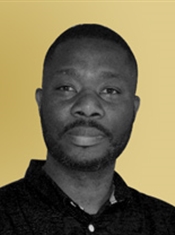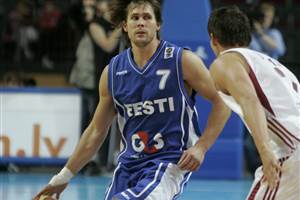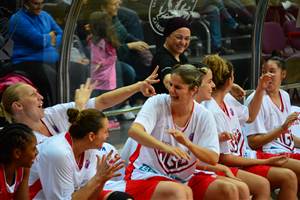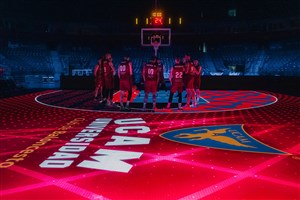
Why we won't stop talking about FIBA AfroBasket 2017 six months before it tips off
SHEFFIELD (Julio Chitunda's African Message) - As national teams begin preparations for the FIBA AfroBasket 2017 qualifiers, I'll look at some of the most frequently asked questions about the continent’s flagship basketball tournament.
There is so much at stake at this year's FIBA AfroBasket that it becomes almost impossible to stop talking about it even though it will only take place in August (19-30) in Brazzaville, Republic of Congo.
Over the past few weeks, I have been searching social media platforms and I realised that most fans and media outlet tend to ask common questions about the Brazzaville showpiece.
Note: (As of 27 February 2017, Nigeria and hosts the Republic of Congo are the only qualified national teams, but I am assuming that a number of teams mentioned in this column are likely to advance to Brazzaville).
1. Who can rival Nigeria at FIBA AfroBasket 2017?
At this moment in time, and judging by the Nigeria's display at the Rio Olympics I can only see two African teams able of matching the African champions’ prowess.
If Nigeria show up in Brazzaville with at least eight players from Rio (they are blessed to have so many talents at their disposal that they rarely keep the same team from one tournament to the next) and keep coach Will Voigt and his assistants, they will automatically become the frontrunners.
Rio 2016: Nigeria’s D’Tigers Defeat Croatia To Keep Rio Hopes Alive https://t.co/U57hByRAv7 via @heraldng pic.twitter.com/86IDq3B65Y
— Nigeria Newsdesk (@NigeriaNewsdesk) August 14, 2016
However, that frontrunner status could be matched by Senegal and Cameroon.
And, that will be the case if Senegal keep the majority of players from the FIBA Olympic Qualifying Tournament in Manilla, add Gorgui Dieng, bring back guard Xane D’Almeida and pick one or two US College players like Pape Diatta.
Cameroon could also match Nigeria if coach Lazare Adingono prepares the team on time and is able to convince Joel Embiid and Pascal Siakam to jump into the mix. Mbah a Moute has already verbally committed to play for his country in Brazzaville. The Cameroonians are currently Africa’s most represented country in the NBA. It remains to be seen how the country’s Basketball Federation capitalise from their talents.2. Why does FIBA AfroBasket 2017 matter so much?
As a result of FIBA's Competition System 2017+ coming into effect in November, this summer's tournament will be its last biennial edition with the next one taking place four years from now, in 2021.
So, the 16 teams that participate in the Brazzaville showpiece in August will automatically make up Africa's representatives in the FIBA Basketball World Cup 2019 Qualifiers, where the world's leading 80 national teams from across four regions will compete to play in China in 2019. There are five berths on offer for African teams to qualify.This is a major change to the African basketball landscape, and national teams seem to be rushing to secure their places for Brazzaville.
3. Will there be a surprise team?
Morocco are good enough to cause some upsets in Brazzaville (again, I am assuming they will succeed in the FIBA Africa Zone 1 Qualifier next month).
Only Moroccans can explain how and why they continue missing out on podium places. They are athletic, can run the floor and shoot the ball well. If they play defense and consistently, this could be their turn to shine in Africa’s biggest basketball stage.4. What should be expected from so-called small teams?
Egypt aren't really a small team, but after dominating the game in the 1980s they fell from grace in 1990s.
However, the Pharaohs managed to cause the biggest surprise at FIBA AfroBasket 2013 winning a silver medal. Anything is possible, especially as they signed head coach Juan Orenga, who looks keen to restore Egypt's glory days.Julio Chitunda
FIBA
FIBA's columnists write on a wide range of topics relating to basketball that are of interest to them. The opinions they express are their own and in no way reflect those of FIBA.
FIBA takes no responsibility and gives no guarantees, warranties or representations, implied or otherwise, for the content or accuracy of the content and opinion expressed in the above article.

















